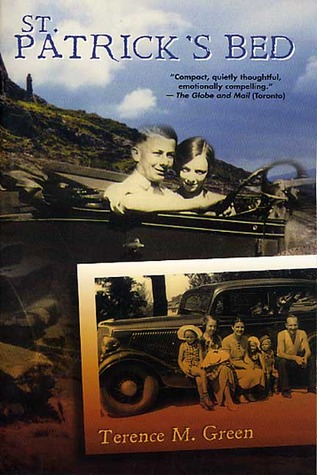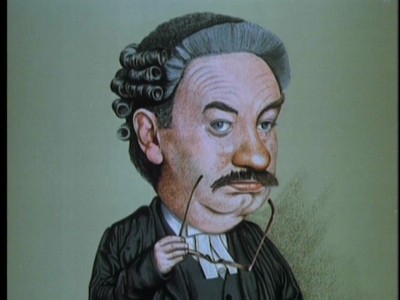While reading John Mortimer's short story
Rumpole and the Spirit of Christmas from his 1981 collection
Rumpole for the Defence, I started thinking about just how many hundreds of Christmas stories have been written over the years and how much so many of them owe to
A Christmas Carol by Charles Dickens. The Dickens tale was certainly not the first Christmas story -- the gospel writers, Matthew and Luke, get credit for that -- yet it is something of a granddaddy to the genre. So many stories set at Christmas share the key elements of the Dickens story: a Scrooge character, someone whose miserliness, deceit, depression or ill humor threatens the spirit of the season; a Tiny Tim character, some innocent who may be deprived of the happiness Christmas promises; and a dramatic change or, in some cases, a miracle, that sets things right.
Even John Mortimer's story, as different from
A Christmas Carol as it may be, contains these elements. The story finds Horace Rumpole once again defending one of the Timsons, a family of small-time crooks who provide the London barrister with a steady income. His client this time is 17-year-old Edward Timson, but the charge is not theft but murder. Rumpole believes his client to be innocent, first because the Timsons have never been violent criminals and second because the key witnesses against him are members of the Dowd family, the Timsons' bitter enemies.
Rumpole, in the midst of a long string of losing cases, suggests to the barrister prosecuting the case that, in the spirit of Christmas, he should omit testimony about young Timson handling a sword before the crime. The sword was not the murder weapon, yet mention of it in the trial could, Rumpole fears, give jurors the wrong idea about his client.
And so Edward Timson is Mortimer's Tiny Tim, while the prosecutor (not the judge, as one might expect in a Rumpole story) is Scrooge. The dramatic change occurs, yet (I'll try not to give too much of the story away) it is not Timson and certainly not Rumpole who is the beneficiary of the prosecutor's renewed Christmas spirit.
Oddly, the story brought to mind a scene in
Love Actually, that British Christmas film of a few years ago. A wife discovers a necklace in her husband's coat pocket, but then at Christmas gets only a Joni Mitchell CD from him. The necklace obviously was intended for some other woman. As in the Rumpole story, it's a reminder that a gift to one person can disappoint another. Not every child can get a pony. Some children, on Christmas morning, will get a lump of coal, or its modern equivalent, a pair of socks, a sweater or a set of underwear.
In the news recently have been reports about someone leaving Tips for Jesus, gratuities amounting to hundreds of dollars, to servers in various restaurants and bars. But, of course, the server at the next table or the server who usually has that table but happens to be off that day or the server in the establishment down the street may understandably feel a bit disappointed. Generous Christmas giving is wonderful, but it isn't always fair.
I can't picture any family sitting around the Christmas tree next Tuesday night listening while Father reads
Rumpole and the Spirit of Christmas. This story is no substitute for O. Henry's
The Gift of the Magi. Yet it's a fine story that gives us an insightful variation on the Dickens model.
 We expect multi-generational novels to cover hundreds of pages, yet Terence M. Green's St. Patrick's Bed, published in 2001, is just a skimpy 220 pages, and even then a number of those pages are completely blank. Yet the Canadian author's story, a sequel to Shadow of Ashland, involves three generations of the Nolan family, with references to some earlier ones. If the novel seems slight, it proves itself not insubstantial.
We expect multi-generational novels to cover hundreds of pages, yet Terence M. Green's St. Patrick's Bed, published in 2001, is just a skimpy 220 pages, and even then a number of those pages are completely blank. Yet the Canadian author's story, a sequel to Shadow of Ashland, involves three generations of the Nolan family, with references to some earlier ones. If the novel seems slight, it proves itself not insubstantial.






